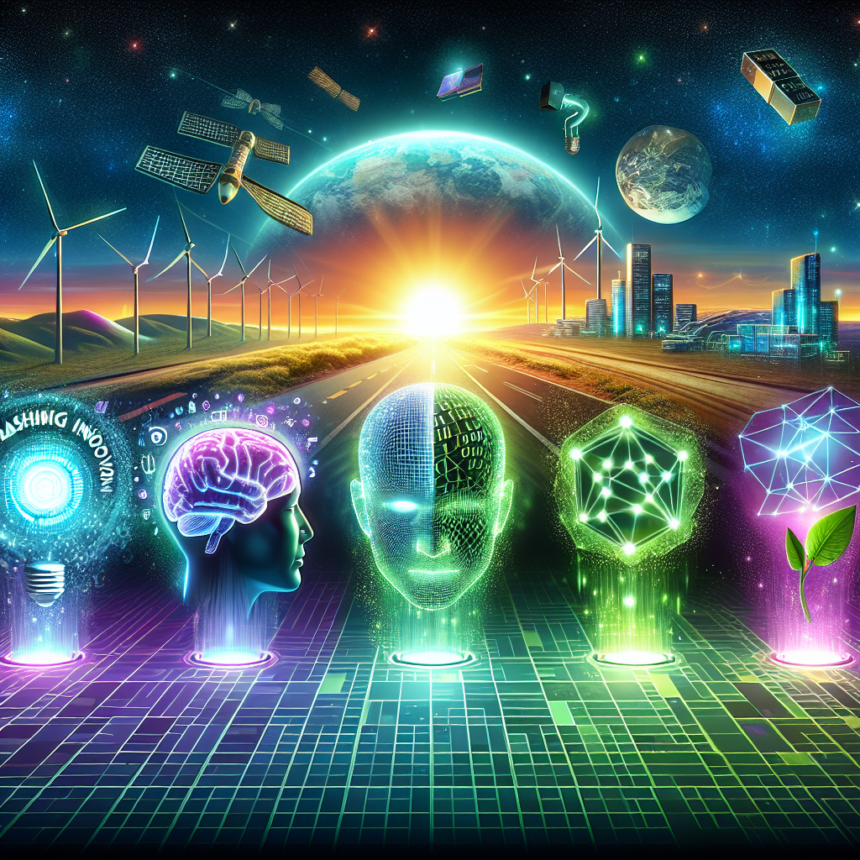As we venture deeper into the 2020s, innovation continues to accelerate at an unprecedented pace. This rapid technological advancement brings about groundbreaking possibilities that could reshape industries, enhance lives, and foster unprecedented communication and collaboration. As we look towards 2024, several emerging technologies stand out, poised to disrupt the status quo and drive progress in diverse fields. Here are the top five emerging technologies to keep an eye on this year.
1. Artificial Intelligence (AI) and Machine Learning (ML)
Artificial Intelligence, particularly its subset, Machine Learning, has made significant strides in recent years. In 2024, we can expect advanced AI applications to permeate various sectors, including healthcare, finance, and education. Innovations like deep learning algorithms will allow for enhanced data analysis, leading to better predictive analytics, automated decision-making processes, and more personalized user experiences. The rise of generative AI models, capable of creating text, images, and even music, will redefine creativity, making AI a partner in content creation rather than just a tool.
2. Quantum Computing
Quantum computing is on the verge of a major breakthrough, with tech giants and startups racing to develop more powerful quantum systems. In 2024, we anticipate that quantum computers will begin to tackle complex problems that current classical computers struggle with, such as advanced cryptography, complex simulations, and optimization in logistics and supply chains. This technology can revolutionize industries, leading to enhanced drug discovery, more efficient material design, and even climate modeling. As quantum computing matures, its practical applications will emerge, driving innovations we once thought impossible.
3. Extended Reality (XR)
Extended Reality encompasses Virtual Reality (VR), Augmented Reality (AR), and Mixed Reality (MR), creating immersive experiences that blend digital and physical worlds. In 2024, XR will become increasingly important in sectors like education, training, and remote work. With more sophisticated devices and applications hitting the market, businesses can leverage XR for interactive training programs, virtual meetings, and immersive marketing experiences. The integration of XR in gaming and entertainment will also continue to grow, offering users unparalleled engagement and interactivity.
4. 5G and Beyond
The rollout of 5G technology has already begun transforming connectivity, enabling faster and more reliable internet access. However, its true potential will be evident in 2024 as smart devices become more commonplace. The collaboration between 5G, the Internet of Things (IoT), and edge computing will allow for real-time data processing, smarter cities, and enhanced mobile experiences. Industries like autonomous vehicles, telemedicine, and smart agriculture will greatly benefit from 5G, fostering innovations that increase efficiency and reduce latency.
5. Biotechnology and Synthetic Biology
Advancements in biotechnology and synthetic biology are set to revolutionize healthcare, agriculture, and environmental conservation by 2024. Techniques such as CRISPR gene editing are making it easier to manipulate genetic material, opening new avenues for treating genetic disorders, enhancing crop resilience, and even combating climate change. Furthermore, the development of synthetic biology can lead to biofuels and biodegradable materials, aligning with global sustainability goals. As this technology matures, its implications for public health and the environment will be profound and far-reaching.
FAQs
Q1: How can businesses leverage these emerging technologies?
A1: Businesses can adapt by investing in research and development, collaborating with tech startups, and providing training for employees to become familiar with these technologies. Understanding how to integrate them into operations can enhance efficiency, drive innovation, and create competitive advantages.
Q2: Are there any ethical considerations associated with these technologies?
A2: Yes, each technology poses ethical questions. AI and ML raise concerns over data privacy, bias, and transparency. Quantum computing may challenge current encryption methods, impacting data security. Extended Reality can affect mental health and social interactions. Biotechnology raises bioethics issues regarding genetic manipulation. It’s important for stakeholders to engage in ethical discussions as these technologies evolve.
Q3: What role do governments play in the development of emerging technologies?
A3: Governments play a critical role by funding research, creating policies to regulate innovation, and promoting public-private partnerships. They can also ensure education systems adapt to prepare the workforce for new technological landscapes.
Q4: How soon can we expect widespread adoption of these technologies?
A4: While 2024 will witness significant advancements, widespread adoption may vary by technology. Factors such as infrastructure readiness, regulatory frameworks, and public acceptance will influence the timeline for each sector.
Q5: What should individuals do to prepare for these changes?
A5: Individuals can stay informed by following technology news, gaining digital literacy skills, and being open to lifelong learning. Engaging in tech communities and exploring online courses can provide valuable knowledge that enhances adaptability to emerging technologies.
In conclusion, 2024 promises to be a year of transformative technological advancements that can revolutionize how we live and work. By staying abreast of these emerging technologies, individuals and businesses alike can harness their potential for growth, innovation, and improved quality of life.










